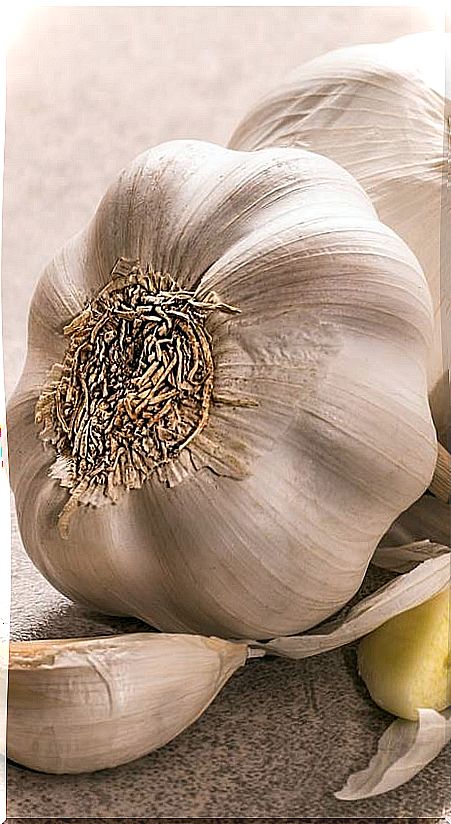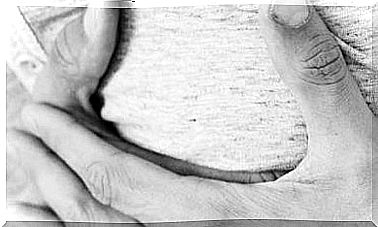Why Should I Eat Garlic Every Day?
In a 2019 review, the benefits of garlic are tested in relation to various health problems. To get all the benefits, you only need to eat one or two cloves of garlic a day.

In August 2019 a comprehensive review was published in the journal Food Science and Nutrition on the health effects of plants Allioideae family. In addition to leeks (and countless ornamental plants), this genus includes garlic, wild garlic, chives, as well as onions and shallots.
For this work, 16 studies were evaluated (only reviews and meta-analyzes and only human studies; animal studies were not taken into account).
Scientifically Proven Garlic Benefits
Of all the vegetables in the Allioideae family, garlic produces the most health benefits. In summary, the results of the evaluation are as follows:
Garlic and cancer
Eating plenty of leeks, onions, garlic, and chives reduces the risk of stomach cancer by 50%. A reduced risk of cancer of the larynx and esophagus only applies to the regular consumption of garlic, that is, not to onions or other vegetables in the family.
The risk of colon cancer, on the other hand, does not decrease even with garlic, which raises the suspicion that the corresponding active principles of these vegetables are destroyed in the course of digestion, so that they are inactivated when they finally reach the intestine.
However, garlic slightly reduces the risk of colon polyps (by 12%).
Consuming garlic (but not onion) reduces the risk of prostate cancer by approximately 23%.
Garlic, cholesterol and arteriosclerosis
Garlic, especially in the form of preparations , improves those values that indicate calcification of the blood vessels (arteriosclerosis) and, therefore, is considered useful for the prevention of cardiovascular diseases.
With a daily consumption of 1 to 2 g of garlic for an average of 12 weeks, in a study in people with high levels of cholesterol and fat in the blood , total cholesterol decreased by an average of about 17 mg / dl and cholesterol LDL by almost 10 mg / dl, while HDL cholesterol levels increased by 3.2 mg / dl. Triglycerides decreased by 12.4 mg / dl.
To achieve results it is necessary to consume garlic daily for a minimum of 8 weeks.
Garlic and high blood pressure
Aged garlic extract lowers blood pressure and is therefore a good way to supplement routine hypertension therapy. Aged garlic is the result of soaking fresh garlic in 15-20% alcohol (safe for consumption) for 20 months.
In one study, patients with high blood pressure who received four capsules of 960 mg each experienced a reduction in systolic value of more than 7 mmHg after 8 weeks.
In a study that lasted at least 12 weeks, 600 to 900 mg of garlic (extract or powder) per day were able to reduce systolic blood pressure by 5 mmHg and diastolic blood pressure by 2.5 mmHg.
Garlic as an anticoagulant
Aged Garlic Extract is a natural blood thinner. It has blood thinning effects, but did not increase the risk of internal bleeding in animal studies.
Raw garlic does not affect blood clotting, at least not when consuming 4.2 g per day, which corresponds to a large garlic clove.
Garlic for gingivitis
Aged Garlic Extract improves oral health, reduces gum inflammation and gum bleeding.
Garlic reduces inflammation
Garlic reduces the value of CRP, C-reactive protein, a parameter that indicates inflammation, by 0.8 mg / l.
In one study, a daily dose of 800 mg of garlic extract (divided into two doses) also reduced the inflammatory level of interleukin-6 and the sedimentation rate (which, if increased, indicates inflammation) over the course of 8 weeks.
Garlic and diabetes
In diabetics, garlic can lower fasting blood sugar by an average of 11 mg / dl and HbA1c by an average of 0.6 mg / dl. The longer garlic is consumed, the more pronounced this effect is.
The researchers involved in the review described above recommend long-term and permanent consumption of garlic, especially in the case of diabetics and patients with high blood pressure and high blood lipid levels. The following applies: the longer you consume garlic, the greater its effect.
No side effects
There are hardly any side effects from consuming garlic, other than breath. Gas, reflux, and belching may occasionally occur. Allergic reactions are very rare. With the other vegetables in the family the annoying adverse effects are even less.
Scientific references:
- Wan et al. Allium vegetable consumption and health: An umbrella review of meta-analyzes of multiple health outcomes. Food Science and Nutrition.










